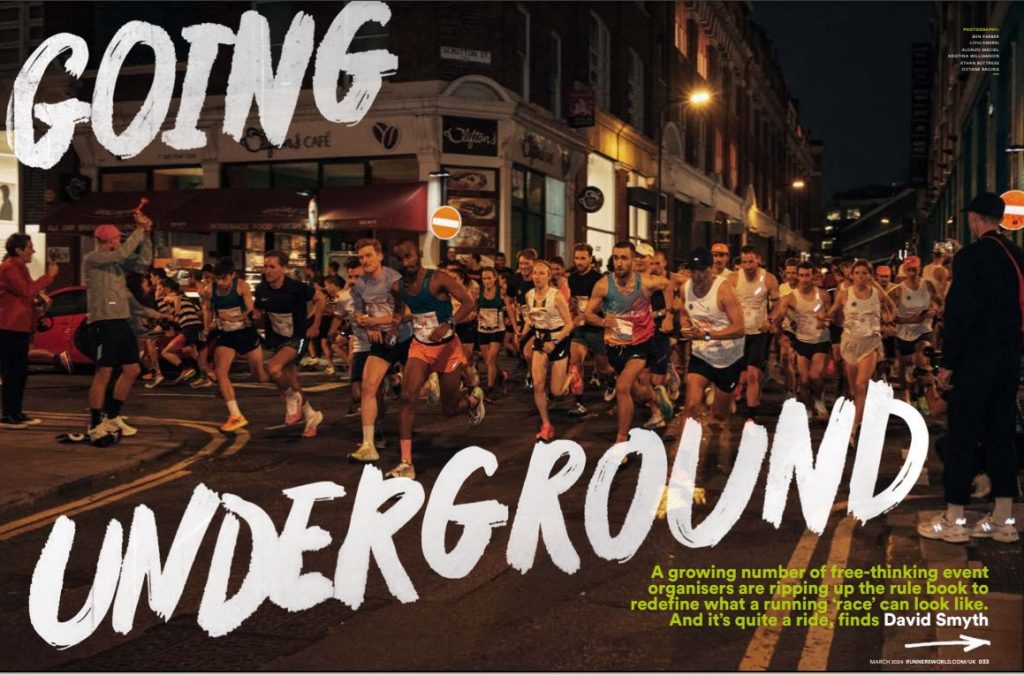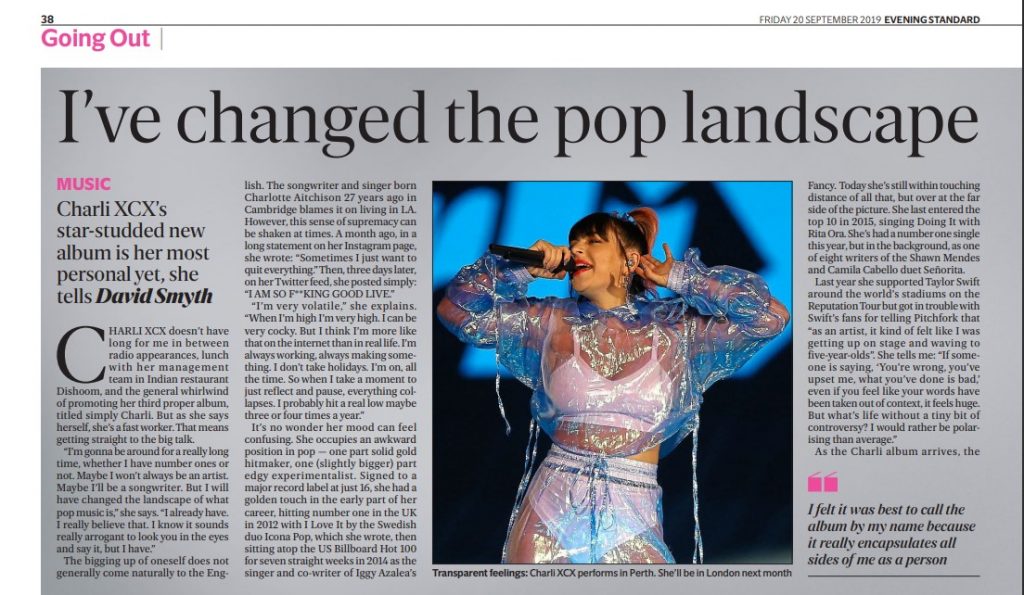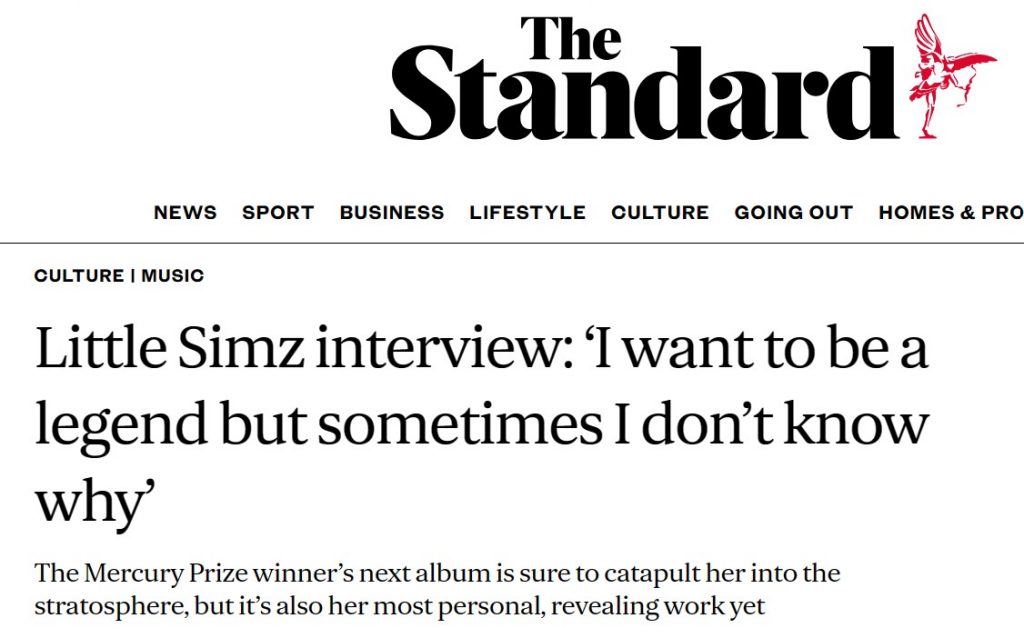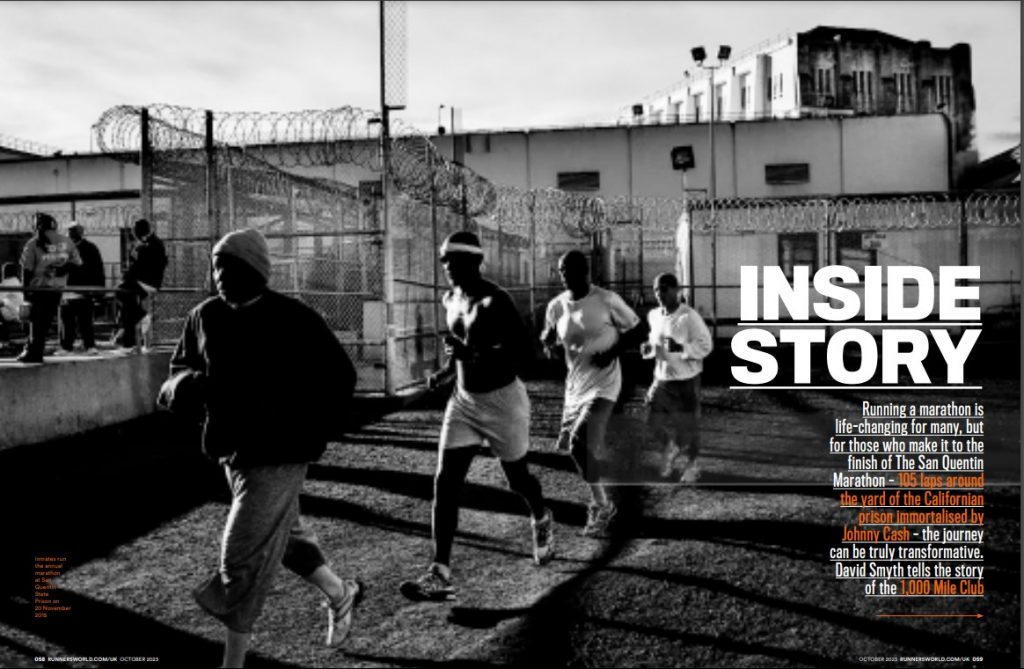You never know quite what you’re going to get with MUNA. The LA trio’s band name, which they present in capitals though it isn’t an acronym, translates as “hope” or “desire” in Arabic, and is often used as a girl’s name. However, in Finnish slang, it means “dick”, or in the plural, “balls”.
Harry Styles found out a bit more about this when he invited MUNA to support him on his first solo tour in the autumn of 2017. As a goodbye gift, singer Katie Gavin, guitarist Josette Maskin and producer-guitarist Naomi McPherson ordered him a rare Robert Mapplethorpe photography book from the internet. When it arrived, it consisted largely of pictures of Mapplethorpe’s penis.
“I think Harry was familiar with Mapplethorpe but maybe not to that extent,” explains McPherson. “We gave it to him with a caveat: ‘We got you this book. Just know that our intentions were pure and we’re so sorry.’ He was totally cool about it. He’s a sweet dude.”
When they’re not busy corrupting former boy band members, MUNA are busy subverting pop from within. A queer identifying, political band who came together as likeminded music majors at the University of Southern California in 2014, they released their breakthrough singles in 2016 and played gigs wearing homemade “Fuck Trump” T-shirts. Their single I Know a Place was written just before and released a few months after the mass shooting in Orlando’s gay nightclub Pulse, and came to be a powerful call for safe spaces in the LGBTQ community. “I know a place we can run/Where everyone gonna lay down their weapon/Don’t you be afraid of love and affection,” Gavin sang over vibrant Eighties inspired synthpop. When they played it live it acquired an additional middle bit including the line, “I throw my arms open wide in resistance/He’s not my leader even if he’s my President.”
The dark, powerful electronica of their debut album, About U, arrived in 2017. As they return today with their second album, they’re continuing to embrace that role as a pop act who have something more important to say. It’s called Saves the World, so that the sleeve reads “MUNA Saves the World”.
“The title is a little bit cheeky but there is also some vulnerability to it,” says Maskin. “We wanted to embrace the fact that we’re seen as a band that has opinions, and to step up to the challenge of the pressure that we put on ourselves to be that band. We want to empower ourselves to feel like we can save the world and also empower other people.”
It’s about making changes on an individual level even though it may feel that the overall state of the world is overwhelmingly bad, she clarifies. “It’s meant to be a record that helps people to feel hopeful about the future. All you can really do is show up and do your best. That’s more the message we’re going for, rather than that you should trust musicians for your political opinions, because ultimately I don’t really know much other than I’m scared.”
There was a thrilling optimism to the comeback single, Number One Fan, despite its fantastically deadpan opening lines: “So I heard the bad news/Nobody likes me and I’m gonna die alone in my bedroom/Looking at strangers on my telephone.” It’s a song about loving yourself even after the audience screaming dies away, and is the most upbeat, catchiest thing they’ve done.
“I wrote that chorus driving in my car. One second it wasn’t there and the next it was,” says Gavin. “The brightness and lightness of the song is surprising and new because that brightness in my own life has been surprising. It was something new in my life, this interest in joy and laughter and really unabashedly cheering yourself on. It’s taken a lot of tumultuous work which is pretty much on the rest of the record.”
The rest of the album is more subtle, mostly slowing the pace and setting Gavin’s digitally layered voice against delicate washes of synths. “Our musical choices were very maximalist on the first record. We played a lot, especially me as the guitarist,” says Maskin. “The approach to this record was to do the most in the most minimalist way. We were trying to shorten our musical sentences.”
Lyrically, the new songs have turned out to be much more personal for Gavin. It’s Gonna Be Okay, Baby, the expansive closing track, seems to tell her life story, including the line, “You’ll go out of your way trying to find some place you can hide and get high/You’re gonna think about suicide.”
But that doesn’t mean the songs can’t be political too, she insists. “We’re not interested in being like politicians. We don’t think we can be saved by politicians at the moment. We’re interested in being honest and, especially with this record, having a perspective on life and society that is informed by things like trauma. In my life, I was at the end of the road with compulsively re-enacting certain patterns that were really painful and were not yielding good results. I had to figure out how to free myself from that so I can become… I don’t exactly know what I’m becoming but it’s somebody who’s free to be a beneficial person on the planet. Free to do my best rather than doing the same bullshit until I die. That really resonates on a larger scale right now if you look at what we’re doing to the planet. We’re telling a story on an individual level that works well as a metaphor on a global level.”
Gavin comes over as the most serious of the three, though it can be hard to tell when they have contrived to dial in to Skype from three different California locations in a way that allows them all to see me in my living room while I can only see footage of myself. You can’t have the most natural, flowing conversation when each of them has to introduce themself again every time they speak, and they keep leaving long awkward pauses while they wait for someone else to answer a question. “I could probably benefit from having a bit of a higher tolerance for small talk. Since I was a kid, it’s been more comfortable for me to function at a slightly deeper level,” says the singer.
The depth of their bond as a trio – they describe each other as best friends – served them well during the harder points of making a second album. “We got swept up in the first record cycle and were so hyped and excited that I feel like we didn’t necessarily take the best care of ourselves,” says McPherson. “Personal struggles came out to play when you’re off the road, because time has passed and you haven’t had enough time to yourself to think about how everything made you feel and how you’re actually doing as a human being.”
“But the process of making the record and learning about ourselves taught us more about boundaries and how they can actually be a sign of compassion and love,” continues Maskin. “They’ve taught me what it means to be in a committed partnership, which is how we’re able to make the art we want to make and take our egos out of the equation. What it comes down to is we all love and respect each other so much.”
An excellent foundation from which to set about saving the world.
Saves the World is released today on Columbia. MUNA play Sep 9-10, Village Underground, EC2 (villageunderground.co.uk)











